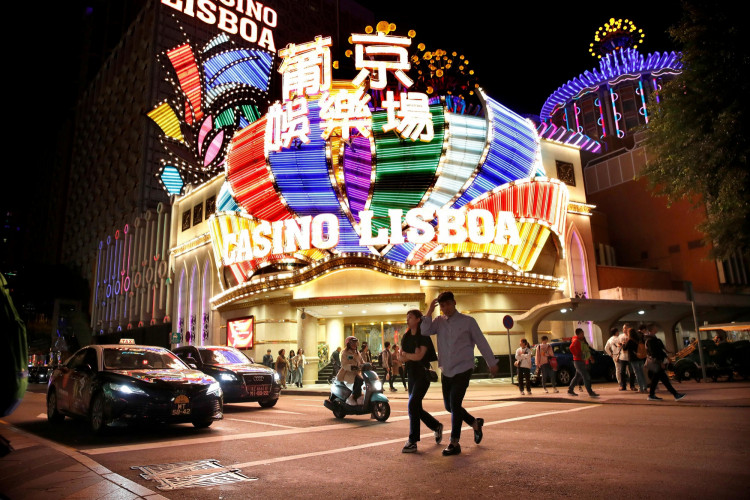Macau, the largest gambling center in the world, began its second day of widespread COVID-19 testing on Monday, following the discovery of dozens of locally transmitted cases over the weekend, with most businesses closed but casinos remaining open.
Analysts predict that casino revenue will be close to zero for at least seven more days, and certainly for the following weeks, as the majority of locals have been asked to stay at home, restaurants will be closed for dine-in, and border controls have been strengthened.
Testing of Macau's nearly 600,000 citizens is anticipated to conclude on Tuesday, as the former Portuguese territory adheres to China's "Zero COVID-19" policy.
Sands China led the slump with a decline of more than 8 percent, the largest drop since March 15th. MGM China, Wynn Macau, Galaxy Entertainment, Melco, and SJM Holdings all declined between 4% and 7%.
The majority of Macau's population is directly or indirectly employed by the casino industry, which accounts for over 80 percent of the government's revenue.
The previous coronavirus epidemic in Macau occurred in October of last year. This year, an outbreak in the neighboring Chinese territory of Hong Kong resulted in over one million confirmed cases of the disease and over nine thousand deaths, overwhelming hospitals and public services.
Macau's top executive, Ho Iat Seng, issued a statement on the government's website, stating that the source of the most recent outbreak remains unknown despite its abrupt onset and rapid spread.
In spite of the fact that the number of daily cases in Hong Kong has climbed to over 1,000 in the previous week, officials have stated that they are unlikely to tighten limits further because the demand on medical services has not increased.
There is only one public hospital in Macau, and its services are already stretched everyday. The region's rapid intention to test its whole population comes while it maintains an open border with mainland China.
In contrast, China has not opened its borders to Hong Kong, leaving the financial centre largely cut off from the rest of the world.
This week, the government of Macau is expected to approve a revised gaming law that will establish the requirements for the multibillion-dollar casino operators to continue operations.
"Depending on how fast Macau is able to get the latest spread under control, there is a chance that the finalization of the gaming legislation revisions would be delayed," said Sanford C Bernstein analyst Vitaly Umansky.





